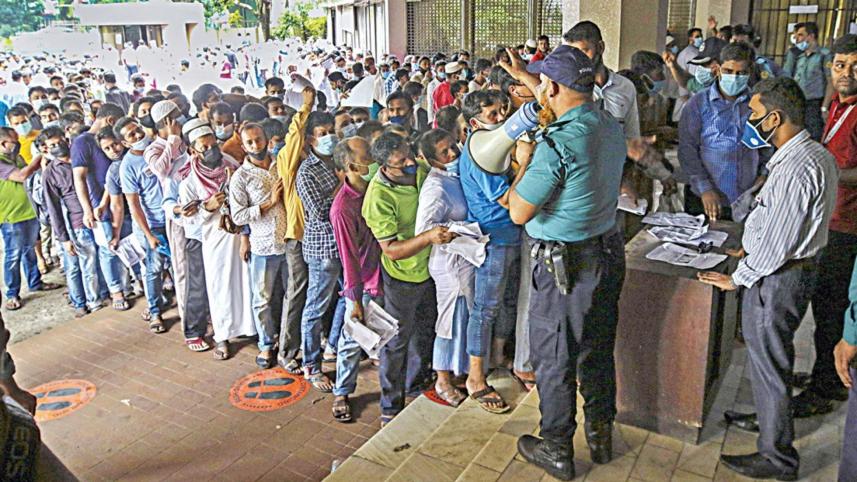Protecting the rights of migrant workers

We agree with the Bangladesh Civil Society for Migrants (BCSM) that the government should develop a common guideline for case evaluation of migrant workers whom host countries have sent back involuntarily. The Covid-19 crisis has exposed just how vulnerable our migrant workers are and how terribly they are neglected during a time of major crisis, even though they too were adversely affected—perhaps even more so, being stuck in a foreign country under harsh conditions, or being forcefully sent back home without having their dues paid.
It is with this in mind that the rights group has urged the government to look at whether the visas of workers were expired and if all the dues had been cleared in case of involuntary returns. Using this data, the government with support from the civil society could launch an international campaign for the rightful compensation and payment of migrant workers' wages. BCSM and its member organisation Refugee and Migratory Movements Research Unit (RMMRU) recently published a book highlighting how Bangladeshi migrant workers have faced overwhelming challenges during the Covid-19 outbreak. The book includes findings of a survey on 200 male and female migrants, interviews of 25 involuntarily returned migrants, and 30 left-behind female members of migrant households—thus on a smaller scale, it already attempted to acquire some data.
The study found an urgent need for framing policies both at origin and destination countries to protect the migrants during emergencies. It also suggested that the Bangladesh missions should conduct the registration process after doing due diligence before the workers are repatriated. And should workers' wages or other benefits remain pending after repatriation—which has happened in hundreds if not thousands of cases following the outbreak of Covid—then the missions can take the power of attorney from the migrants and pursue settlements of claims.
This sounds completely reasonable and a fair thing to do. The kind of mistreatment of migrant workers that we have seen during this emergency is likely to continue to happen unless the international community comes to an agreement that properly protects their rights at all times—especially during emergencies. And we hope the Bangladesh government will courageously lead that campaign and bring it to the attention of the international community until a truly concrete agreement is established.



 For all latest news, follow The Daily Star's Google News channel.
For all latest news, follow The Daily Star's Google News channel.
Comments